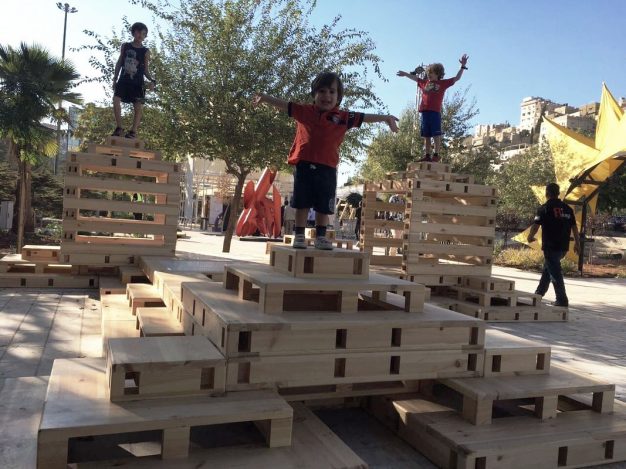
Including Disabled Children in Play Provision
Leading UK play charities and industry bodies are calling on local authorities to create accessible and inclusive child play spaces – and by doing so upholding every child’s right and need to play.
Including Disabled Children in Play Provision, a joint statement from the Children’s Play Policy Forum and UK Play Safety Forum, says that society has failed in producing enough accessible and inclusive places for children to play within a reasonable distance of their homes. It makes clear that
- a positive, solution-focused attitude is essential to include disabled children
- it is possible to make adaptations to increase accessibility and remove barriers to participation by engaging with and prioritising the needs of disabled children and their families,
- there is an urgent need to change public attitudes
- more welcoming spaces must be created which maximise the range of play opportunities offered by the equipment and the environment.
The statement also calls for consistent use of the terms accessible and inclusive play.
Current position
The UK Play Safety Forum and Children’s Play Policy Forum agree that all playgrounds and spaces should meet the accessible definition, to meet the needs of as many children, of as many varying abilities, as possible. And that the strategic provision of truly inclusive spaces at well-chosen destination sites is essential, to meet the needs of ALL children.
Key actions from the statement:
- A positive and solution-focused attitude is critical
to creating inclusive play space design, based on understanding and prioritising the needs of disabled children and making adaptations to include them. - Children and their families want play spaces which include the range of features and facilities they need.
- Play spaces should offer a balance of high to low challenge opportunities and a good mix of play features.
- All children deserve to be able to enjoy play spaces
that work well for them and their families within
a reasonable distance of their home. - All play spaces should be developed through community participation, co-design, and co-production.
Who statement is aimed at:
- Local authorities and play providers
- Parents, families and community groups
- Landscape architects
- Equipment providers.
Tim Gill, Chair, Chair UK Play Safety Forum said: “Just like any child, all disabled children need and want to play. But for decades, they have been left poorly served. This statement makes a powerful case for change, while acknowledging the challenges. Perhaps most importantly, it sets out a clear vision for new and improved play spaces that will engage children of all abilities.”
Mark Hardy Chairman Association of Play Industries (API), said: “API members have always strived to provide play facilities that offer an accessible local attraction, which engenders ownership from the entire community and provides a lasting legacy. We are delighted to have supported and contributed to this latest guidance to give greater clarity on the different priorities for ‘Accessible’ and ‘Inclusive’ play spaces.”
Download Including Disabled Children in Play Provision
Additional text: Play Safety Forum




